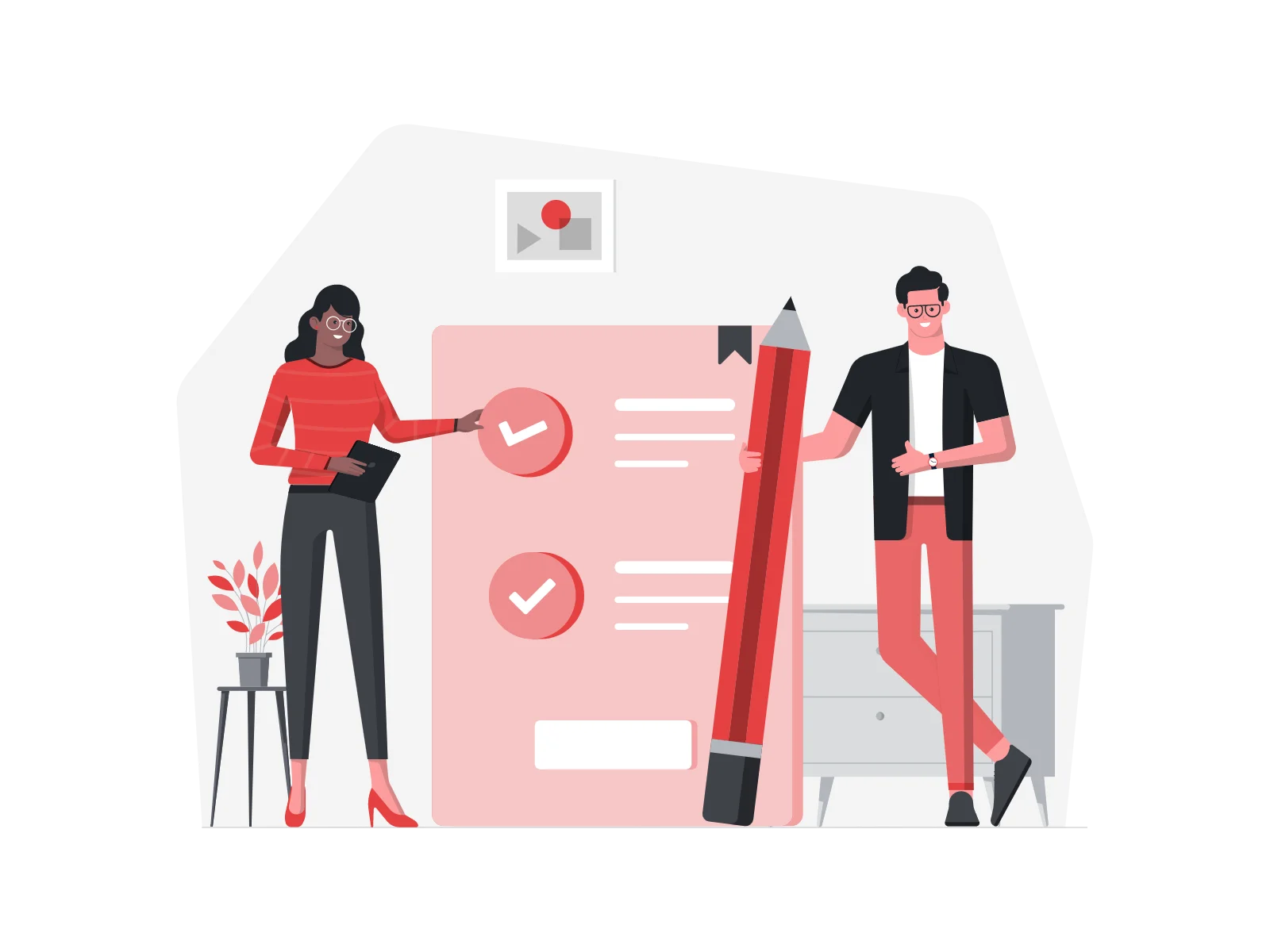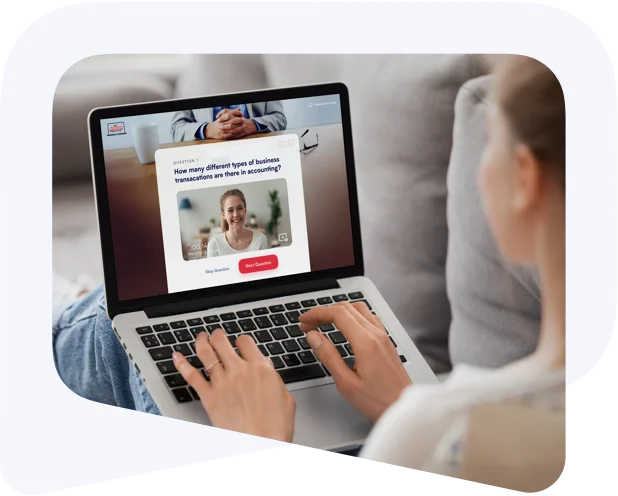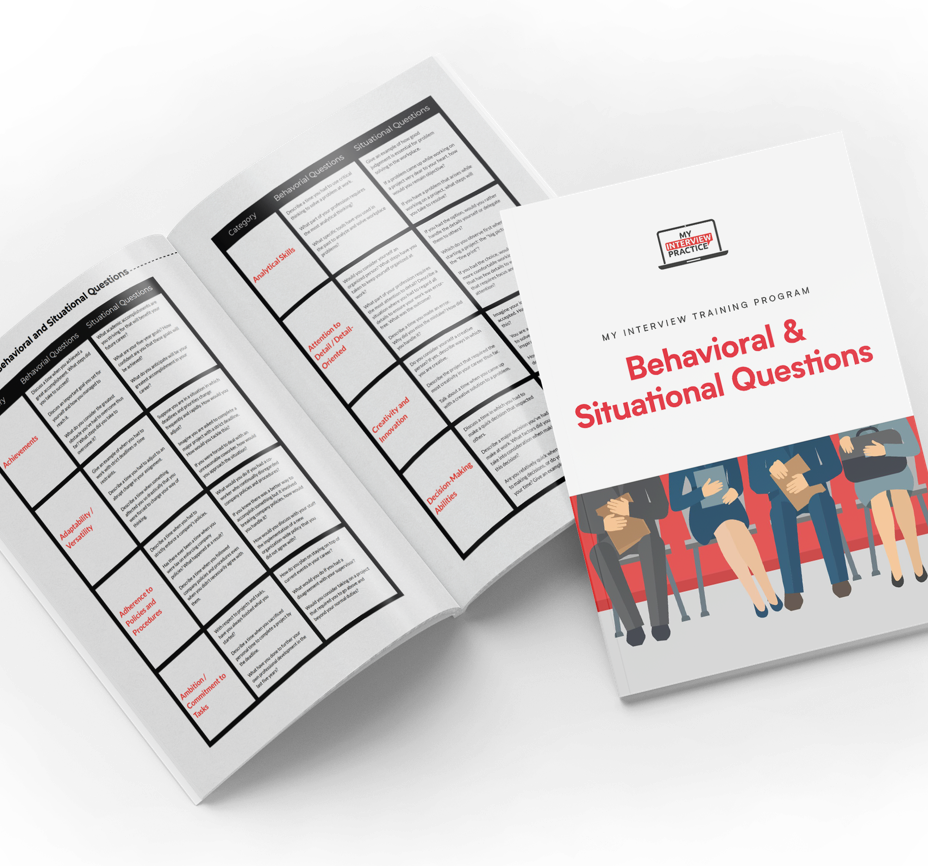How to Answer Common Behavioral Based Interview Questions

When preparing for a job interview, you can anticipate being asked various types of questions, including:
- General questions – Exploring your background, views, and what makes you unique
- Technical questions – Specific to the role and requiring you to discuss terms or concepts to show your aptitude
- Operational questions – Exploring how you go about accomplishing the tasks related to the job
- Situational questions – Addressing future behavior by creating scenarios you will likely encounter
- Behavioral questions – Discussing how you reacted to or resolved issues in your previous roles
Each of these categories addresses a different subject area and needs to be responded to in a specific manner. Behavioral questions are probably the most popular and the most challenging because they focus on specific past experiences and require you to give a focused account of your aptitude, skills, and abilities.
This article will show you how to prepare for an interview with behavioral questions and the best way to craft your answers. It will talk about the various categories of behavioral questions and the type of information they are trying to elicit.
The Purpose of Behavioral Questions
Behavioral questions help the interviewer confirm your qualifications for the job. They also provide insight into how you will react to situations you may encounter in this role since past behaviors indicate how you will perform in the future. Finally, your answers to behavioral questions will provide the interviewer with an example of your communication skills.

How to Respond to Behavioral Questions
It is relatively easy to identify a behavioral question. They usually start with phrases such as:
- “Tell me about a time when …”
- “Can you describe how you responded to …”
- “What did you do when …”
Once you identify a behavioral question, you can begin to formulate your answer.
The first step is to start thinking about your answer using the STAR framework. This will enable you to walk the interviewer through your answer in a logical and organized manner. It will also help you develop a story for each type of behavioral question you may be asked during an interview. Preparing these stories in advance will make the interview go smoothly while giving you the confidence that you are prepared for any behavioral question the interviewer may ask.
The STAR framework is a methodological way of answering behavioral questions. The STAR method follows a simple formula that is outlined in the table below:
| Situation | The situation is a specific event or circumstance you were in. When describing the situation, you do not want to be vague. Make sure to give as focused an account as possible to the interviewer. |
| Task | The task is the goal you were working toward. The task must be specific and quantifiable. |
| Action | The action describes the acts you specifically took to accomplish your task. Make sure to focus on things YOU did – don’t spend too much time talking about what your team or group did because the interviewer will be more interested in YOUR contribution. |
| Result | The result is the outcome of your actions. Make sure to describe in detail how the event ended, what you learned, and your role in bringing about that outcome. |
Take a look at the example below to get an idea of what your scenarios should look like:
| Situation | “Advertising revenue was falling last quarter in my previous role at Digital Marketing Weekly, and we were losing viewers.” |
| Task | “My goal was to generate content that would result in a 10% increase in viewership and lead generation.” |
| Action | “I commissioned a report that focused on helping our target audience drive sales for the upcoming holiday and used it to capture qualified leads.” |
| Result | “The report resulted in over 60 new leads as well as a 17% increase in viewership for the following quarter.” |
Preparing for Behavioral Questions
Being prepared to respond to behavioral questions is critical for a successful interview. There are several steps you need to take to prepare which include:
- Becoming familiar with the different categories of behavioral questions and the type of questions in each category.
- Creating a story for each question using the STAR framework. While it’s impossible to prepare for every question your interviewer might ask, structured interviews follow a formula, and most interviewers will ask the same kind of questions, no matter what industry or position you’re applying for. You can take advantage of this by connecting your stories to commonly asked questions.
- Practice answering questions in our interview simulation tool. Our tool provides curated questions that are specific to your profession while the webcam records your responses. This allows you to not only practice for the interview but also practice for the pressure and then share recordings with others to receive targeted feedback on how you did.

Categories of Behavioral Questions
Knowing the different categories of behavioral questions and types of questions in each category will help you create your stories and practice your answers. It will also help you understand each category’s purpose and what information the interviewer is trying to uncover by asking the question. Once you understand this, you can create your STAR response for each type of question in every category.
The categories of behavioral questions and the type of questions in each category are:
- Achievement – Questions in this category address your ambition, achievements, and commitment to tasks. A typical question is, “Tell me about your greatest achievement in this role and how you accomplished it.”
- Communication – These behavioral questions examine your interpersonal communication, negotiating, persuasion, and presentation skills as well as your verbal and written communication styles. An example of this type of question is, “Talk about a time you successfully negotiated an agreement with the vendor.”
- Conflict – Unfortunately, conflict is part of every job. The interviewer will ask you behavioral questions related to conflict to understand your adaptability, conflict resolution skills, and your ability to handle disagreements and stressful situations as well as your versatility. A common question about conflict is, “Tell me about a time you had a conflict with a co-worker and how you went about resolving it.”
- Cultural Sensitivity – In today’s diverse work environments, cultural sensitivity is critical. This category of questions explores your views of acceptance, diversity, and inclusiveness. You may be asked a question such as, “What steps have you taken in your past jobs to promote diversity within the organization?”
- Customer Relationships – If the job for which you are interviewing involves working with customers, you’ll be asked questions about client satisfaction, customer experience, resolving issues, and setting expectations. An example is, “Tell me about a time when you created an exceptional customer experience for one of your clients.”
- Ethics – This type of question addresses your behaviors concerning adherence to policies and procedures, ethics, and integrity. A typical question is, “Can you discuss a time when your ethics were challenged and how you responded to it?”
- Failure – Nobody is comfortable discussing their failures, but you can anticipate this question coming up during every interview you attend. The interviewer is trying to discover how you go about handling criticism, handling failure, and learning from your failures. They may ask, “Tell me about the last time you failed and what lessons you learned from it.”
- Leadership – Even though you may not be interviewing for a leadership position, every job involves qualities related to leadership. These include decision making, employee development and mentoring, goal setting, leadership, motivation, performance management, professionalism, strategic planning and team building. An example of a question in this category is, “Can you give me an example which illustrates how you go about setting goals and creating plans to achieve them?”
- Organization – Organization is a skill every employee needs to possess. Interviewers will ask you behavioral questions about related skills and traits, including action orientation, delegation, initiative, multi-tasking, organizational skills, project management, and time management. An example of such a question is, “Discuss a situation in which you delegated a task, and describe the results.”
- Problem Solving – Employers hire candidates to help them solve problems and resolve issues. It would be best if you had several different stories you can tell about how you’ve done this in the past. They should demonstrate your analytical skills, attention to detail, creativity, and innovation skills. You may be asked, “Can you describe a problem you solved using a creative and innovative solution?”
Conclusion
Behavioral questions can be challenging. However, if you are prepared, have stories for each category, and have practiced, you will be able to address any behavioral question effectively. This will ensure you are perceived as a qualified candidate for the position.
Looking for training to ensure you are fully prepared for your upcoming interview? View the steps of how to prepare for an interview here.

The key to nailing your interview – practice, practice, practice.
As with anything, practice makes perfect. The most common ways to practice are with in-person mock interviews or a list of questions. While these options are a great place to start, they can leave a lot to be desired.
Practicing with In-Person Mock Interviews and Question Lists
One way to get valuable interview practice is to set up in-person mock interviews. Unfortunately, they can be somewhat inconvenient. You have to find someone to conduct the mock interview, and schedule a meeting every time you want to practice.
Question lists offer a much more convenient way to practice interviewing. Unfortunately, they do little to recreate actual interview pressure. In a real interview you’ll never know what’s going to be asked and this is exactly what can make interviews so stressful.
Interview Simulators – The best of both worlds.
With interview simulators, you can take realistic mock interviews on your own, from anywhere.
My Interview Practice offers a simulator that generates unique questions each time you practice, so you’ll never see what’s coming. There are questions for over 120 job titles, and each question is curated by actual industry professionals. You can take as many interviews as you need to, in order to build confidence.
| List of Questions |
In-Person Mock Interview |
My Interview Practice Simulator |
|
|---|---|---|---|
| Questions Unknown Like Real Interviews | |||
| Curated Questions Chosen Just for You | |||
| No Research Required | |||
| Share Your Practice Interview | |||
| Do It Yourself | |||
| Go At Your Own Pace | |||
| Approachable |
Our interview simulator uses video to record your responses, and recreates the pressure you would feel in a real interview. This also allows your to see how you perform and perfect your responses. You can then share your responses with colleagues and mentors so that you can get valuable feedback.
The better way to practice interviewing.
Simulate realistic interviews for over 120 job different titles, with curated questions from real employers.
Learn More
Get the free training guide.
See the most common questions in every category assessed by employers and be ready for anything.
Get the Guide



